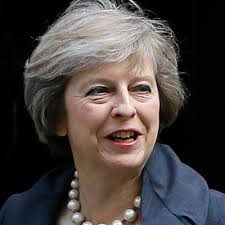October 9 2017.
There could not have been a greater contrast between the Labour Party and the Tory Party conferences this year. Labour’s conference, attended by thousands of delegates, with vibrant and over-filled fringe events, was youthful, lively, energetic and full of optimism. The Tory conference, epitomised wonderfully by Theresa May’s bumbling speech, was dour, stage-managed and, above all, elderly.
It is no surprise that the serious journals of capitalism have dubbed the Labour Party as a Government-in-waiting. The leaders of business are not as short-sighted as their political representatives, the Tory Party. Many of them turned up to Brighton to see the Party’s resurgence for themselves. Corporate delegates from the likes of BP, Barclays Bank and Microsoft mixed with trade union and constituency delegates. As one lobbying firm told the Evening Standard, “clients are thinking seriously about how to engage with Labour.”
The Tory Party, on the other hand, seems to be dying on its feet. The average age, according to the right-wing Bow Group think-tank, is 71 years of age, probably about 30 years more than the Labour Party. Support for the Tories between 18 and 34-year-olds is down to just 27 per cent. Among 35 to 44-year-olds, it is little better, at 33 per cent. These are the lowest figures for these age ranges ever recorded.
Small wonder, therefore, that despite the hatred they feel for one another, Tory MPs are biting their collective lips and hanging on. Theresa May might be “dead woman walking” as former Chancellor George Osborne described her, but there is no alternative on the horizon. It is a measure of the profound crisis in the Tory Party that Jacob Rees-Mogg, like a character out of an Bronte novel, is held to be a serious contender for leadership. Waiting in the wings, the Labour Party are ready for office and are ahead in the polls. There is not a Tory MP who doesn’t repeat that in the mirror every morning.
But no matter how much the Tories will want to hang onto office to keep Labour out, political developments do not take place to order. “Life”, as someone once said, “…is what happens while you’re making other plans.” It is quite possible that some unforeseen crisis or event, or a complete dead-end in the Brexit negotiations, will lead to the fall of the May Government and a fresh election. No amount of dread over the possibility of a Labour Government can alter the fact that the Tories are hanging by a thread. There has never been a better time for Labour to go onto the offensive, to demand a new election and an end to this hopeless government.
It looks like it will not be too long in the future, therefore, before Labour is propelled into office and Jeremy Corbyn moves into Downing Street. This event will usher in the most profound change in British politics for generations. Labour in office will be faced with obstruction and sabotage by big business on a scale unprecedented in modern times as the Establishment fights to protect its privileges and power. All the powers of the billionaire media, the tops of the civil service, the judiciary, not to mention the boardrooms of the banks and big business, will be lined up against a Labour Government.
The very popular reforms advocated by the Labour leadership, and seen as perfectly reasonable by ‘mainstream’ voters today, will be put in jeopardy as the ruling class exerts every facet of its power and influence to bend the Labour government. There will be a stark choice before the Labour leadership under those circumstances. Either Labour will bend the knee to the Establishment, as Syriza was forced to do in Greece. Or Labour will mobilise support in the labour movement and in working class communities everywhere to go on the offensive and to take into public ownership the big companies that dominate and control the economy. In the final analysis, it is only by the planned use of the enormous wealth of the country that Labour can carry out its promised reforms.
One thing is for sure. The ferment inside the Labour Party today is nothing compared to the debate, discussion, argument and upheaval that it will face when (not if) Labour is elected into office. That will be the time to test and contrast socialist ideas, not in the dry language of political theory, but in the language of the NHS, Education, homes, jobs, wages, pensions and the futures and living standards for the big majority of the population.



